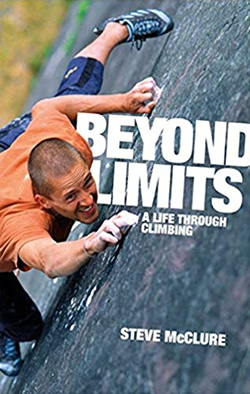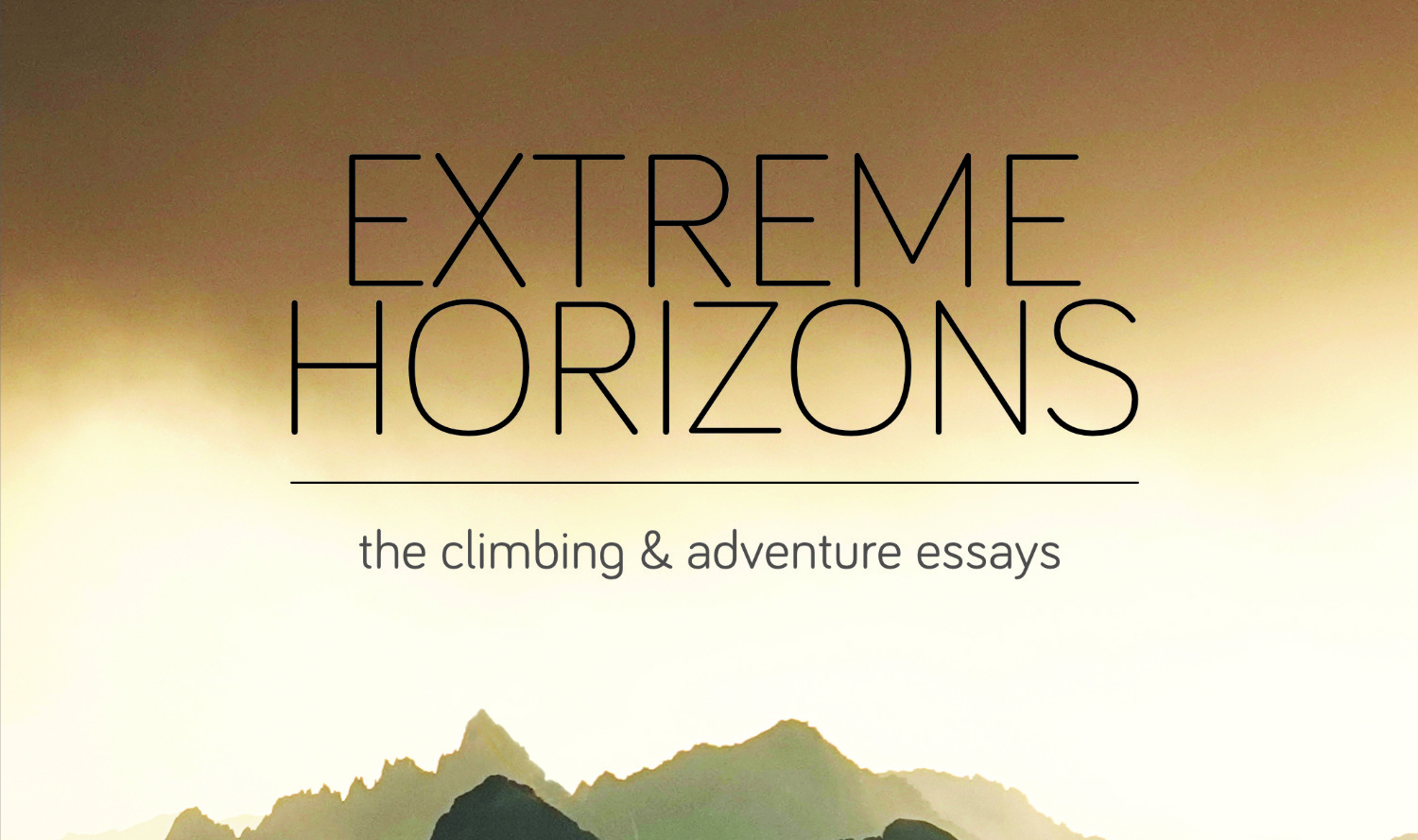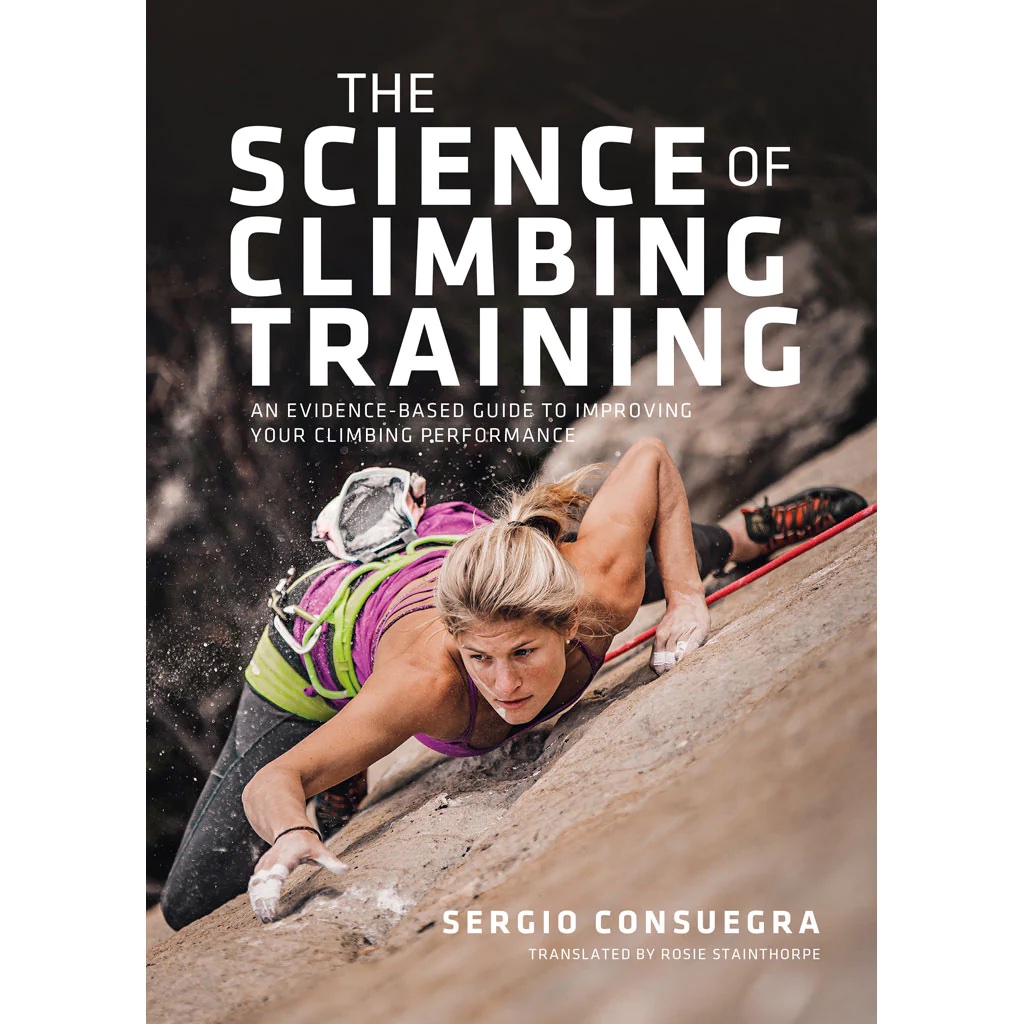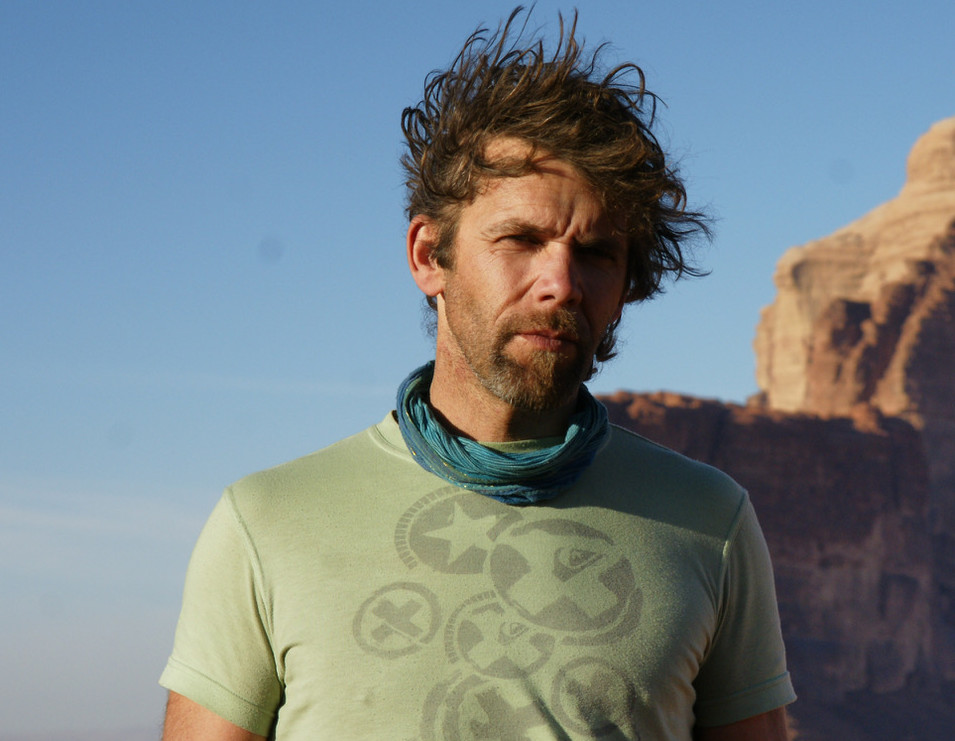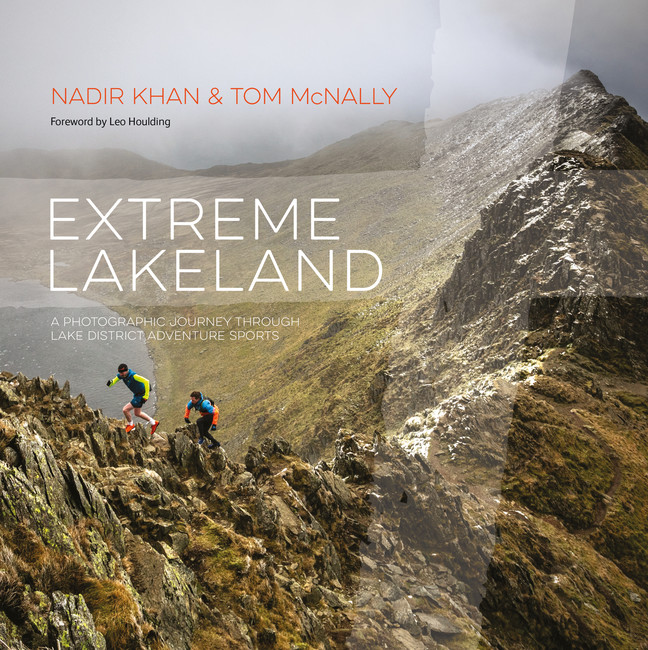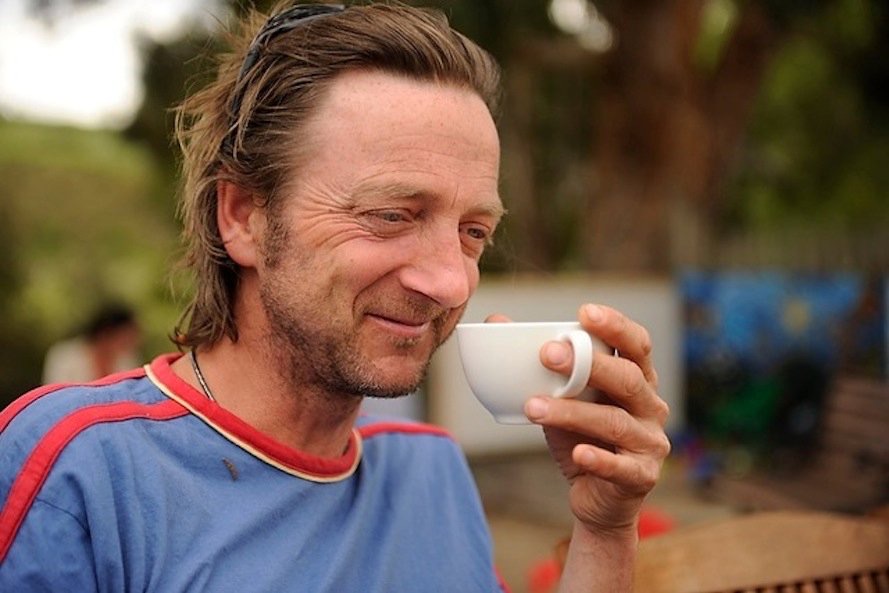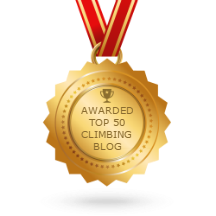How did Covid-19 affect you, your climbing and your travel plans? In this article regular contributor Pete Edwards considers the changes over the recent strange period...
For us as climbers, the Covid-19 pandemic had a particularly big sting. I, like so many of us, focused much of my life pre-2020 around adventurous trips to climbing destinations; right up to the start of the first lockdown for me, as my last trip was to Albarracin in February 2020. I certainly wasn’t alone. The early months of 2021 found a large cohort of international climbers and mountaineers almost stranded in Llanberis (if indeed you can be stranded in Llanberis) where they would usually be in Scotland or in the Alps. When snow fell in those early, locked down months, skis that would usually be sliding on Alpine mountains were suddenly sliding their way down the flanks of Moel Elio. Elio is no Everest but it was the best available for many locals and in many ways, the queues to the summit resembled those typical pictures at the roof of the world.
I would like to quickly point out that I am by no means complaining about the lockdowns and restrictions placed on us in the UK by the government in an attempt to control the virus. Irrespective of our opinions of the government’s handling of the situation, the argument that we should disregard public health in order to go on holiday is poor at best.
However, as we all began to emerge from the chaos of the coronavirus and ventures away become possible again, I have been prompted to reflect on both this lifestyle and on the many trips over the past fifteen years or so. So here, I’d like to share some of those reflections and thoughts and to ask the big question following a pandemic: can we and should we simply return to how life was before?
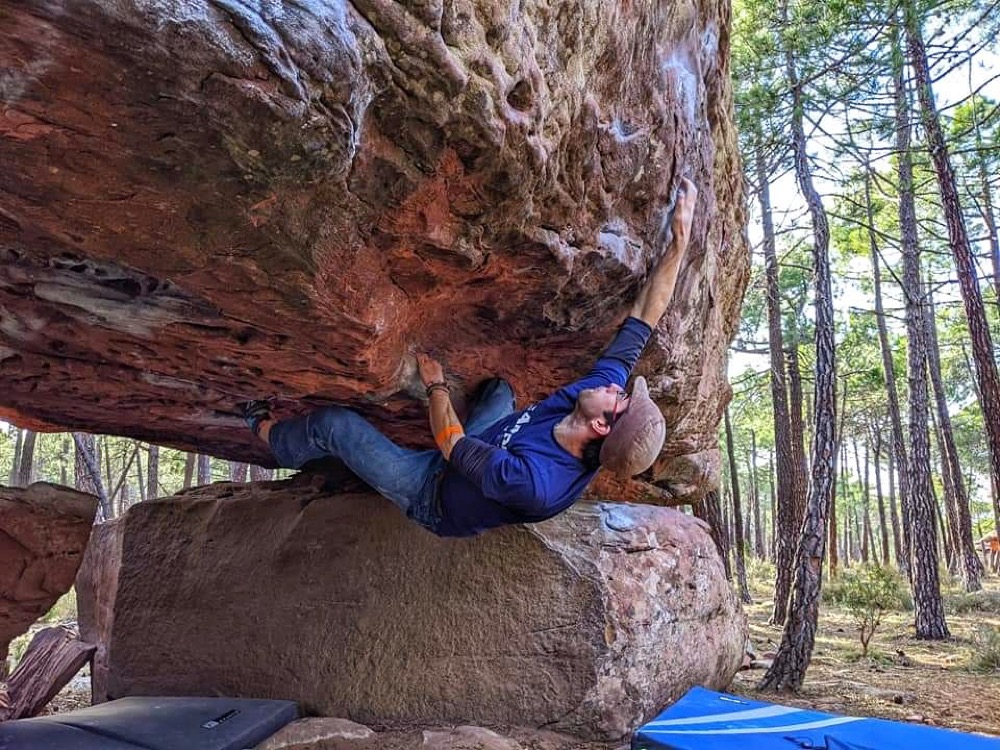
The author climbing in Albarracin in February 2020, just before the first lockdown. Photo by Sally Lisle
A Travelled Existence
Between my first two week trip to Ailefroide back in August 2005 and Albarracin 2020, I had more than my fair share of adventures abroad. Even counting them would be tricky; a random guess would be somewhere in the region of thirty or forty. Some were wildly successful, others less so and one of them even became known as the Ill-Fated Trip of 2013 where my phone broke, the tent broke, the stove blew up in my face and the car broke down (twice). All were noteworthy, although those whose tales last the years are generally the ones with some sort of drama. Weirdly, the climbing usually doesn’t take centre stage, unless hitting some sort of milestone.
Take the trip to Magic Wood in June 2015 for example. Yes, climbing wise it was in my top two, being only one of two trips where I climbed 7c abroad (Intermezzo on this occasion, Carnage assis on the other) but that was not the only aspect that makes this single week of my life one of the most noteworthy. For those that have not been, there is a strong sense of community at Magic Wood. With the climbing concentrated into such a small area – around a mile of climbing in between two bridges – and a single campsite for all to use, it is difficult not to mingle with others. For me, this is one of the major drivers of travelling: to meet other people, other cultures, other ideologies and ways of life and to broaden my own mind as a consequence.
That week in 2015 had a real international feel to it. As well as myself and one other from the UK, and my longstanding travel companion who was (and remains) Canadian, we had Germans, French, Russians, even Israeli. Every day, we would all disperse to our various projects before coming back to the campfire in the evening to share stories of successes and failures, cook and eat communally and create friendships that last to this day.
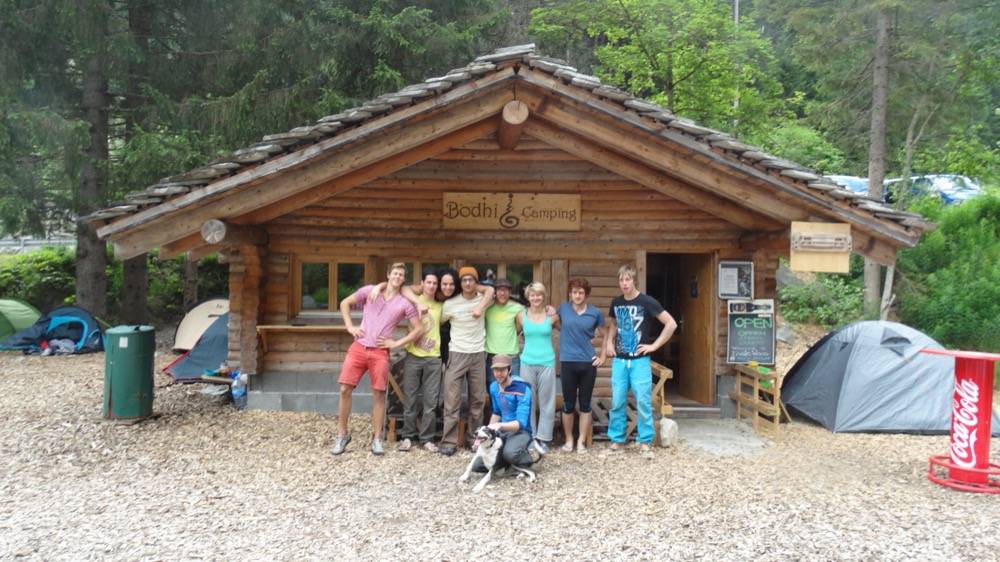
A group shot of the group from a magic week in Magic Wood in June 2015.
A communal scene at a big hotspot is unusual for me though and for the majority of my international climbing career, I’ve hit the road less travelled. Sure, I’ve hit the big venues – Font or Albarracin for example – and reaped the rewards therein but I’ve also hit some amazing backwater spots that most will have never heard of. And that often means that I’m left engrossing in the local community, rather than relying on the commonplace trope of Brits Abroad.
The country that springs to mind more than any other is Sweden. Back on a trip to Font in 2011, I made friends with a Swede then living in Göteborg. We connected on Facebook but didn’t think much of it. Then, in September when my planned Lake District trip fell through, I put an appeal out for dry venue suggestions. He replied with what I now suspect was an off-hand invitation, not expecting me to turn up on his doorstep less than a week later! It became the first of many trips, both of us bouncing around between the countries until 2016, when I embarked on a (frankly insane) idea of driving to his house on the east coast of Sweden. From North Wales. That’s slightly more than 1,600 miles each way. In a 1992 Land Rover Defender. It took a while.
On the way, I collected another foreign and old friend in Copenhagen and we bounced up the coast via Sweden’s best east coast venues: Kjugekull, Västervik and Stockholm. There, he headed home before I checked out the climbing in Uppsala and finally, Gävle before my other half flew out to join me on the drive back; a drive that included a revisit of Göteborg before the city sights of Amsterdam and Bruges.
It’s these experiences I miss and that I hope I can rekindle. I’ve learnt so much about other countries, the people I’ve met. I even had the pleasure of attending the wedding of my friend from Gävle and his wonderful wife back in 2014, not to mention joining them for their annual Midsummers celebration two years later; both phenomenal and completely genuine experiences of life in another country.

The author experiencing one of the most amazing places you’ve never heard of, bouldering on the island of Hönö off the coast of Göteborg. Photo by Emily Slater
The Environmental Impact
One lesson from Covid-19 has been environmental. Climate change has been a big topic for several years now, championed by activists such as Greta Thunberg and David Attenborough. Not that further proof should’ve been needed but worldwide lockdowns demonstrated unequivocally the impact that travel is having on the world. As outdoor enthusiasts, it is surely a topic that we all take very seriously. So the obvious question we are now faced with is surely: should we be driving/flying all over the world?
The fact is that travelling so many miles has consequences. With large distances to cover, climbers often fly (I certainly have, to Spain or Sweden) and as much as we might try and offset our carbon footprint, we can’t really justify our expeditions as essential. With large kit to take with us, and in my case I tend to take my dog, I’ve usually opted to drive. While some, such as my friend Glyn, have done likewise but have done so in modern, electric vehicles, mine is less economical and with only usually myself and the pooch, has a massive detrimental effect on the environment. I’m increasingly left feeling my actions are not okay.
I often say anything is possible if you want it enough and there will be a solution for me if I’m willing to work hard enough for it and compromise somewhat. But that does leave me with some tough choices to make.
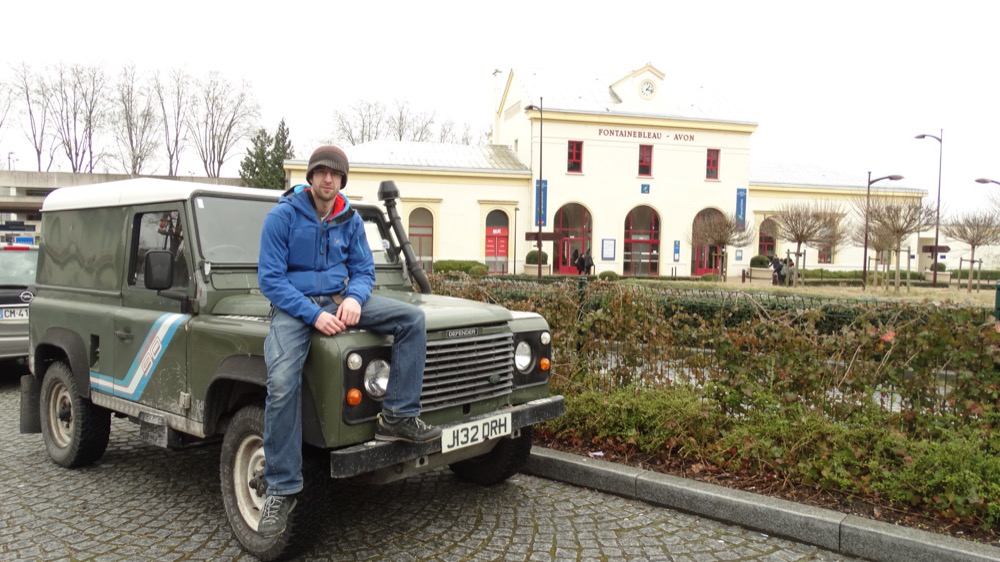
Classy transport? Maybe and certainly gets a few smiles! But definitely not the most environmentally friendly way to travel vast distances across the continent
Domestic Alternatives?
Of course, there are other options for us. We live on an island and overseas travel has been practically outlawed for some time now. At time of writing, foreign holidays are still in the balance leaving us with the choice of sit at home and wait or search a little closer to home. So what about a domestic adventure?
I’ve travelled extensively around the UK too, being pretty much everywhere except Northumberland and Scotland but that doesn’t mean I can’t revisit some old gems. In June this year, we took a week and headed south to Dartmoor; somewhere I literally hadn’t been for ten years. Incidentally, neither February nor June are ideal months for a trip to the rough Devon granite but as is often the case when life gets in the way, we play the cards we’re dealt and make the best of it.
Likewise, I’m very keen to get back to the Lake District. I lived within an hour for three years – formative ones at that, during my undergraduate degree in Lancaster – but most definitely did not make the most. It’s a topic I’d like to discuss further in a future article but for the time being, let’s just say that 20-something me got very acquainted with the Langdale boulders but not really with anywhere else. Some two decades and a massive guidebook update later and I’ve found the error in my ways and really want to go check it out again.
Even taking in to account my dislike of roped climbing, there’s not exactly a shortage of outstanding climbing in this country! Even aside from the obvious – the Peak District, North Yorkshire, Snowdonia (Eryri), the Lakes – the country is riddled with options. A recent weekend trip to Birmingham saw me take a detour to Merseyside and a day at Pex Hill. Sure, it’s no Bas Cuvier but it was still a great day out and is much better than sitting at home, refreshing the news and moping at a lack of international options. Again, it’s a case of making the most and that’s not exactly that lacking for us Brits.
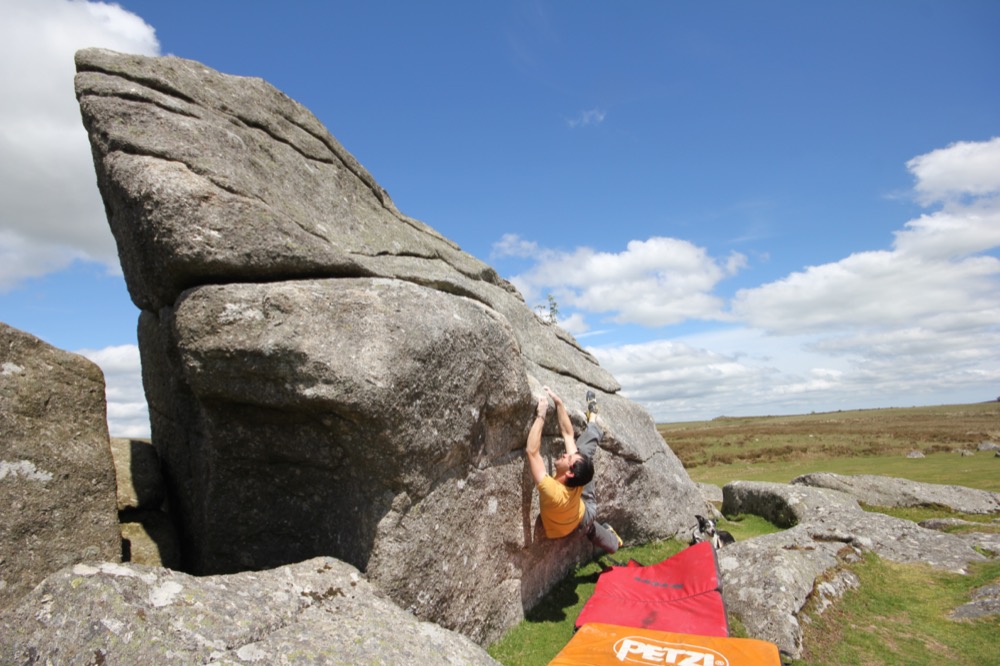
The author climbing (or attempting to climb) the Slopey Traverse 6c at Bonehill Rocks on a recent trip to Dartmoor; the first of many UK trips planned for the near future. Photo by Emily Slater
The Family Factor
One conversation we’ve had at home a lot over the last couple of years has been what will change for people following the first pandemic in living memory. For example, having had more time with their families, has the way people value their time changed? Are people going to be just as willing to forsake watching their children grow up in order to pursue their careers with the determination of before? Clearly, for many, work is necessary to put food on the table but for some, diving into one’s career is a choice; and in much the same way, so are these climbing trips.
I’ve always been an advocate of incorporating family life into the existing passion for climbing but the fact is, it isn’t the same. There are compromises to be made and kids simply aren’t conducive to climbing at one’s limit. We’ve taken our kids on various trips – to Glendalough and Font for example – but it required a very different approach. Having had so much time with them during 2020, am I still as determined to power through and try and make things work? Or am I finally at a point where I’m willing to bench my own dreams in order to place more focus on my kids?
In reality, the drive that has guided me for so long hasn’t waned and I am still as keen to share the experiences of places and cultures that I received from my adventures with my children. But Covid has certainly emphasised the importance of family and how easily it can all be lost. Our family were fortunate, partly through the decisions we had put in place when deciding to have children, in that we were ideally placed to live through the lockdowns with little disturbance to our lives but there is no escaping the lessons learned from Covid-19.
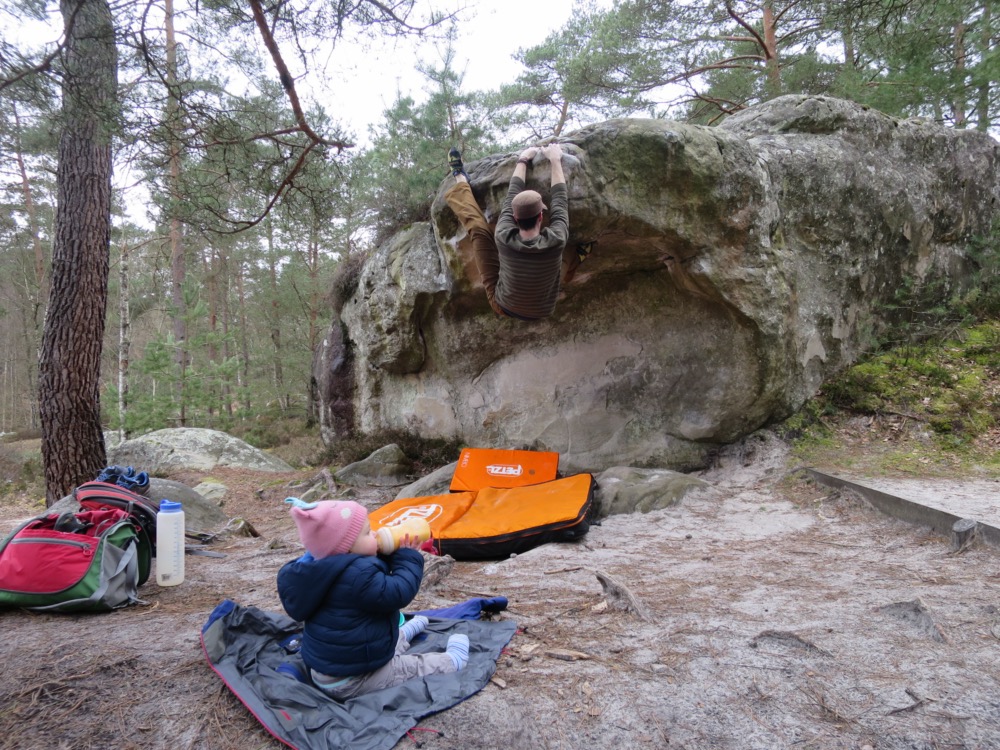
The author on a family-bouldering trip to Font back in 2018. Rosie, on the left, took her first steps on that trip.
A Return to Normal?
So after all of that, once all the restrictions are lifted and borders open again, will I be going straight back to the way things were? Possibly, maybe reducing my foreign travel and replacing some trips with domestic ones instead, both to reduce my environmental impact and to appreciate what is closer to home a little more.
And I certainly won’t be taking my big adventures for granted any more. Every trip away is as much a life experience as it always was but as the old trope says, you don’t know what you’ve got until it’s gone. When these opportunities come back, they are there to be cherished and appreciated; just like our families, our health service, our freedoms in general. The last two years have been tough for us all and I’m sure many of us would be much happier to simply forget it all and wish it all away. For me, this coronavirus has taught me a lot. And I’m determined to remember it and use it to help drive me forward into the next phase of my life.
Pete runs Prowess Coaching, a climbing coaching company based in North Wales, and the blog 'Chez de la Bloc.' To find out more information, visit the website or Instagram.



